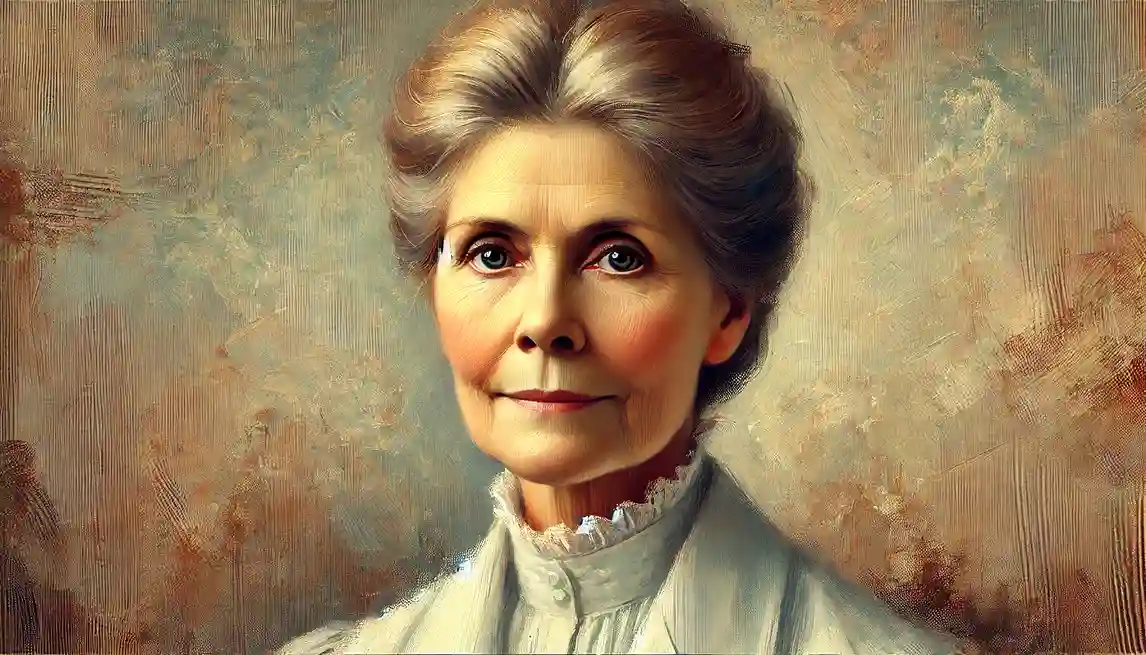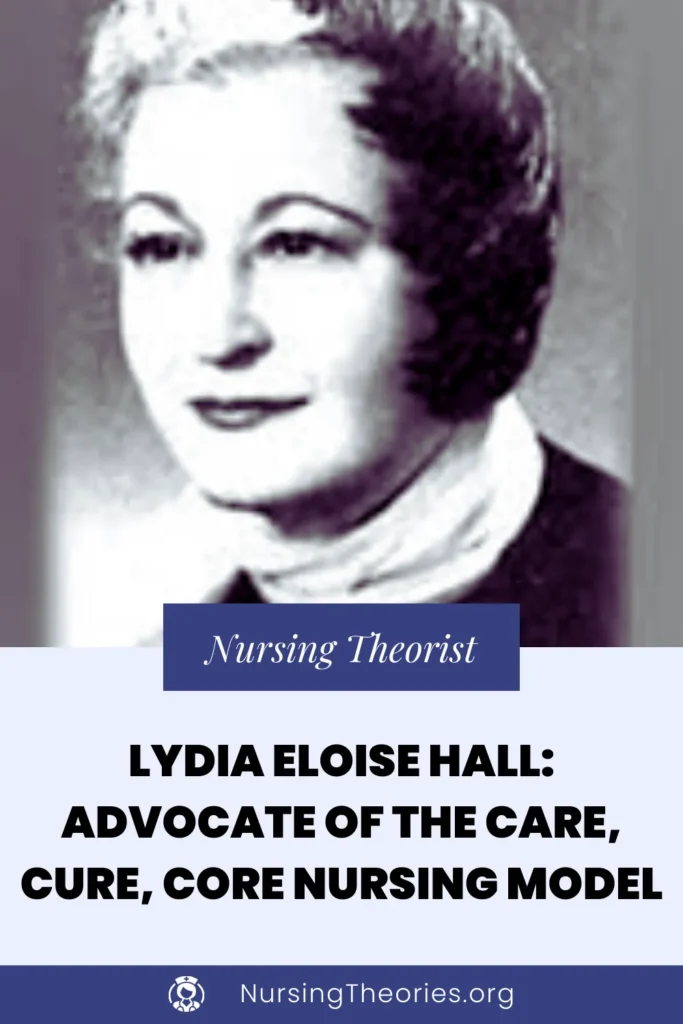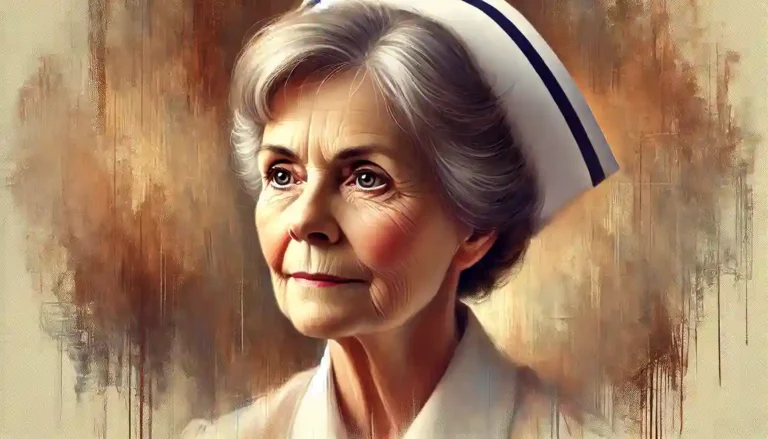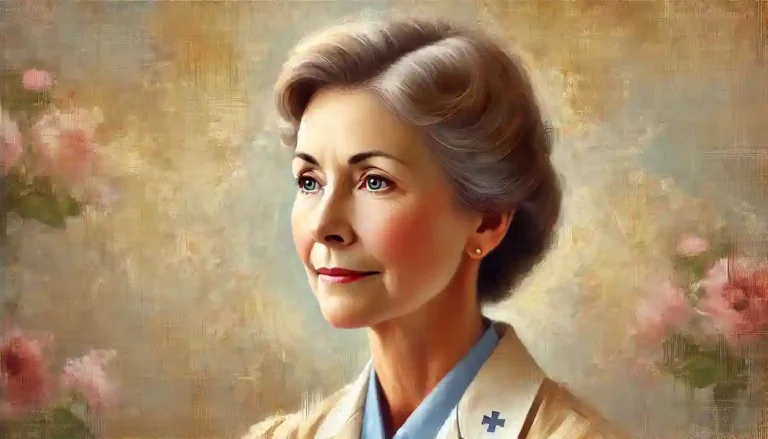Lydia Eloise Hall, a visionary nurse theorist, educator, and healthcare administrator, is renowned for developing the Care, Cure, Core Nursing Model.
Her theory emphasizes the integration of three interconnected aspects of nursing: care, cure, and core, which work together to promote holistic patient healing.
Hall’s contributions reshaped nursing practice by highlighting the importance of patient-centered care and interdisciplinary collaboration.
In this article, we cover Lydia Hall’s life, achievements, philosophy, and lasting impact on modern nursing.

Quick Summary
- Developed the Care, Cure, Core Model, which emphasizes the integration of care, treatment, and patient-centered healing.
- Promoted holistic nursing by addressing the physical, emotional, and psychological needs of patients.
- Advocated for the role of nurses in creating healing environments and fostering patient autonomy.
- Integrated her theory into nursing education and practice, improving patient outcomes.
- Recognized globally for her contributions to nursing theory, research, and healthcare leadership.
Early Life and Background of Lydia Eloise Hall

Birth and Family Background of Lydia Eloise Hall
- Hall was born on September 21, 1906, in New York City, into a supportive family that valued education and community service.
- Her upbringing instilled in her a sense of responsibility and compassion, which guided her decision to pursue a career in nursing.
Education and Early Influences in Hall’s Life
- Hall earned her diploma in nursing from the York Hospital School of Nursing in 1927.
- She continued her studies, obtaining a bachelor’s degree from Teachers College, Columbia University, and a master’s degree in teaching natural sciences.
- Her background in public health nursing and her work with chronically ill patients greatly influenced the development of her theory.
Lydia Hall’s Philosophy and Vision for Nursing
- Hall believed that nursing is a dynamic process involving more than physical care; it requires emotional and psychological support.
- Her vision emphasized that nurses play a crucial role in creating a healing environment that fosters patient growth and autonomy.
- Famous quote: “Nurses are key in bridging the gap between the patient’s internal world and external health interventions.”
Lydia Hall’s Education and Early Nursing Career
Formal Education and Nursing Training of Lydia Hall
- After completing her nursing diploma, Hall pursued further education in public health and natural sciences.
- Her interdisciplinary studies allowed her to approach nursing from both clinical and holistic perspectives.
Early Professional Experiences in Hall’s Career
- Hall worked as a public health nurse and later as an educator, focusing on the care of chronically ill patients.
- Her experiences in community health and chronic care settings provided her with valuable insights into patient needs and interdisciplinary care.
Key Achievements and Contributions of Lydia Eloise Hall
Development of the Care, Cure, Core Model
- Hall’s model divides nursing into three components:
- Care: The nurturing and comforting role of nurses, addressing patients’ emotional and physical well-being.
- Cure: The application of medical knowledge and treatment provided by healthcare professionals.
- Core: The patient’s inner self, which is central to healing and decision-making.
- The model emphasizes that by addressing all three aspects, nurses can provide holistic and effective care.
Contributions to Nursing Education and Curriculum Development
- Hall integrated her theory into nursing education to ensure that students understood the importance of holistic, patient-centered care.
- Her model has been used to develop training programs that teach nurses how to address both physical and emotional aspects of patient care.
Research and Theoretical Advancements
- Hall conducted research on the effectiveness of interdisciplinary care models, demonstrating that holistic approaches improve patient satisfaction and recovery.
- Her studies highlighted the role of nurses as central figures in creating supportive, healing environments.
Global Impact and Recognition
- Hall’s model has been adopted in healthcare institutions worldwide, influencing nursing practices and patient outcomes.
- She received numerous awards for her leadership and contributions to nursing theory and healthcare improvement.
Overview of Lydia Hall’s Care, Cure, Core Nursing Model
- The model focuses on integrating the nurturing aspect of nursing (care), the medical treatment provided by healthcare teams (cure), and the patient’s personal growth and autonomy (core).
- It guides nurses in creating personalized care plans that address all dimensions of a patient’s health.
- To explore this theory in greater depth, visit the in-depth article on the Care, Cure, Core Nursing Model.
Notable Publications by Lydia Eloise Hall
- The Loeb Center: A Model for Interdisciplinary Care – A publication describing her work at the Loeb Center for Nursing and Rehabilitation.
- Patient-Centered Care in Nursing Practice – A book outlining the principles of her Care, Cure, Core Model.
- Several journal articles on nursing theory, holistic care, and interdisciplinary collaboration.
Challenges and Criticisms of Lydia Hall’s Work
Challenges in Implementing the Care, Cure, Core Model
- Some healthcare providers have found it difficult to fully implement the model in high-pressure or resource-limited settings.
- Hall emphasized the importance of adapting the model to fit different clinical environments while maintaining its core principles.
Criticisms of the Model’s Holistic Approach
- Critics argue that the model’s holistic nature may be challenging to measure and quantify.
- However, proponents highlight its success in improving patient outcomes and satisfaction.
Timeline of Major Milestones in Lydia Hall’s Life
- 1906: Born in New York City.
- 1927: Earned her nursing diploma from York Hospital School of Nursing.
- 1950s: Developed the Care, Cure, Core Nursing Model.
- 1963: Established the Loeb Center for Nursing and Rehabilitation.
- 1969: Passed away, leaving a lasting legacy in nursing theory and practice.
Legacy and Lasting Impact of Lydia Eloise Hall
Impact on Nursing Practice and Patient Care
- Hall’s model has improved nursing assessments and interventions by integrating emotional, physical, and psychological care.
Global Influence and Recognitions
- Her theory is taught in nursing schools worldwide and applied in various healthcare settings.
- Hall’s contributions have earned her numerous posthumous honors and recognitions.
Final Years and Passing of Lydia Hall
- Hall continued to advocate for holistic nursing and patient-centered care until her passing in 1969.
- Her legacy lives on through the widespread application of her model in nursing education and clinical practice.
Key Lessons from Lydia Hall for Modern Nursing
- Holistic care: Addressing the physical, emotional, and psychological needs of patients leads to better outcomes.
- Interdisciplinary collaboration: Effective patient care involves collaboration between nurses, doctors, and other healthcare professionals.
- Patient autonomy: Empowering patients to take an active role in their care promotes faster recovery.
- Nurturing environments: Creating supportive and healing environments is key to patient-centered care.
- Continuous learning: Nurses should continually enhance their skills to meet the changing needs of patients.
Conclusion
Lydia Hall’s Care, Cure, Core Nursing Model revolutionized nursing by promoting holistic, patient-centered care that integrates physical, emotional, and psychological support.
Her work, explored further in the in-depth article on the Care, Cure, Core Nursing Model, continues to guide nursing education and practice worldwide.
Hall’s legacy endures through her model’s widespread application, ensuring that holistic care remains at the heart of modern nursing.



